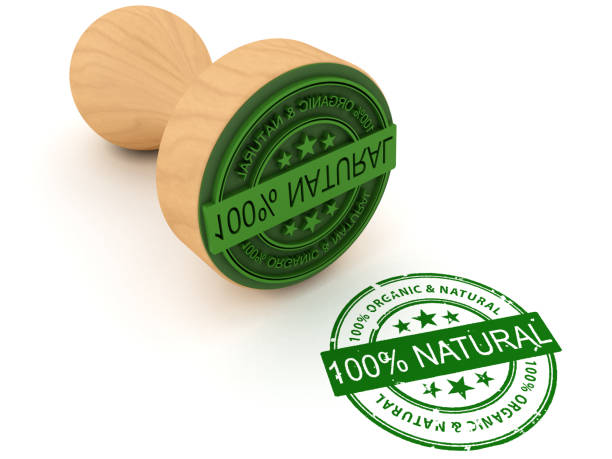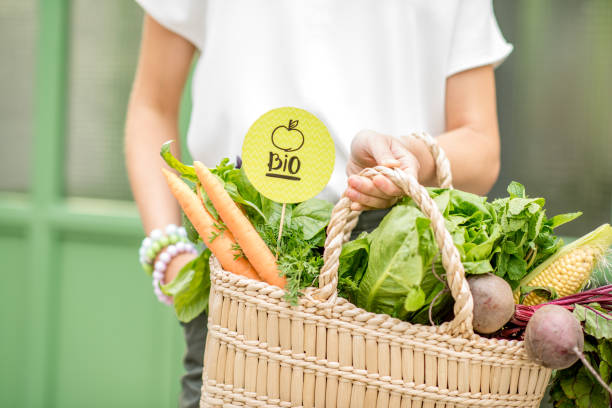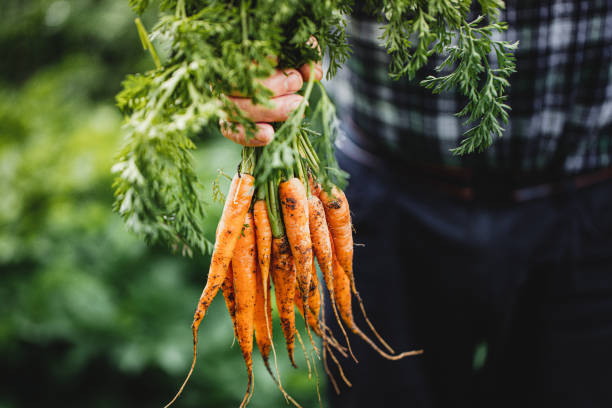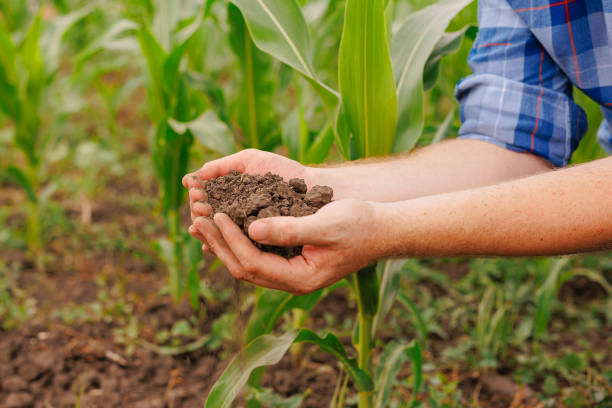The Power of Organic Food: Benefits for Health and the Environment
This post contains affiliate links. I may earn a commission at no extra cost to you if you make a purchase. Note that I’m not a health or outdoor safety professional, so further research is advised. Your support keeps Outdoors A-Z running—thank you! Read the full disclosure.. Read the full disclosure here.
Imagine walking through a vibrant farmers’ market, where baskets overflow with fresh, colorful produce, and the air is filled with the enticing scent of ripe fruits and vegetables. Amongst the bustling crowd, you notice the increasing popularity of organic food. It seems everyone is talking about the benefits of choosing organic. But what exactly is organic food, and why is it gaining such recognition? In this article, we’ll explore the power of organic food and how it positively impacts both our health and the environment.
Table of Contents
Health Benefits of Organic Food
Organic food refers to agricultural products that are grown and produced without the use of synthetic pesticides, herbicides, genetically modified organisms (GMOs), or artificial fertilizers. These organic farming practices offer numerous health benefits compared to conventionally grown food.
Reduced Exposure to Pesticides
One significant advantage of organic food is its reduced pesticide exposure. Conventionally grown crops often carry traces of harmful pesticides, which can accumulate in our bodies over time and pose health risks. Organic farming methods, on the other hand, rely on natural pest control techniques, such as beneficial insects, crop rotation, and trap crops. Choosing organic means minimizing your exposure to potentially harmful chemicals.
Higher Nutrient Content
Studies have shown that organic fruits, vegetables, and grains tend to have higher nutrient content than their conventional counterparts. Organic produce is typically richer in vitamins, minerals, antioxidants, and beneficial phytochemicals, which are essential for maintaining optimal health. By incorporating organic food into your diet, you can boost your nutrient intake and support overall well-being.
Better Taste and Quality

Have you ever noticed the difference in taste between an organically grown tomato and a conventionally grown one? Many people find that organic food offers superior flavor and quality. This can be attributed to the natural and sustainable farming practices used in organic agriculture. By prioritizing quality over quantity, organic farmers cultivate crops that are allowed to fully ripen, resulting in more flavorful and nutritious food.
Enhanced Immune System
Consuming organic food can have a positive impact on your immune system. Since organic crops are grown in healthy, nutrient-rich soil, they develop stronger immune responses, producing more natural defenses against pests and diseases. By consuming organic food, you indirectly support your own immune system, helping it stay robust and resilient.
Reduced Risk of Allergies and Chronic Diseases
Some studies suggest that consuming organic food may reduce the risk of allergies and chronic diseases. Organic farming practices avoid the use of synthetic hormones, antibiotics, and genetically modified organisms, which are often associated with health issues. Choosing organic options may be particularly beneficial for individuals with sensitivities or allergies, as they can avoid potential triggers commonly found in conventional food.
Environmental Benefits of Organic Food

Beyond its impact on human health, organic food also plays a crucial role in protecting and preserving the environment. Let’s explore some of the environmental benefits associated with organic farming practices.
Preservation of Soil Fertility
Organic farming methods prioritize soil health and fertility. Instead of relying on synthetic fertilizers, organic farmers use compost, manure, and other natural amendments to nourish the soil. By adopting practices such as crop rotation and cover cropping, organic farmers maintain the soil’s nutrient balance, prevent erosion, and promote long-term soil fertility.
Protection of Water Quality
Conventional agriculture often relies on chemical fertilizers and pesticides, which can seep into water bodies, contaminating local water supplies. In contrast, organic farming practices minimize the use of such chemicals, thereby reducing the risk of water pollution. Organic farms prioritize water conservation techniques, such as drip irrigation and rainwater harvesting, to ensure efficient water use and preserve water quality.
Conservation of Biodiversity
Organic farms provide habitats for a diverse range of plants, animals, and beneficial insects. By avoiding synthetic pesticides and promoting natural pest control methods, organic farming fosters biodiversity and protects important pollinators, such as bees and butterflies. Preserving biodiversity is crucial for maintaining a healthy ecosystem and supporting the sustainability of our planet.
Reduction of Greenhouse Gas Emissions
Organic farming methods contribute to the reduction of greenhouse gas emissions, which are major drivers of climate change. Synthetic fertilizers used in conventional agriculture release large amounts of nitrous oxide, a potent greenhouse gas. By utilizing organic practices that rely on natural fertilizers, such as compost and animal manure, organic farmers can significantly reduce their carbon footprint and mitigate climate change.
Sustainable Farming Practices
Organic agriculture embodies principles of sustainability. Organic farmers prioritize renewable resources, soil conservation, and ecological balance. By adopting regenerative practices such as agroforestry, conservation tillage, and integrated pest management, organic farming systems promote long-term sustainability and strive to leave a positive impact on the planet.
Organic Farming Methods

To fully understand the power of organic food, it’s essential to explore the farming methods employed in organic agriculture.
Prohibition of Synthetic Pesticides and Fertilizers
Organic farming strictly prohibits the use of synthetic pesticides and fertilizers. Instead, farmers rely on natural alternatives such as botanical insecticides, biocontrol agents, and crop rotation to manage pests and diseases effectively. This approach reduces chemical residues in the environment and safeguards the health of farm workers and consumers.
Use of Natural Fertilizers and Pest Control Methods
Organic farmers utilize natural fertilizers, such as compost, manure, and organic amendments, to enrich the soil and provide essential nutrients to plants. They also employ various pest control methods, including the introduction of beneficial insects, physical barriers, and cultural practices like intercropping and companion planting. These practices promote a balanced ecosystem, where pests are controlled naturally, minimizing the need for chemical interventions.
Crop Rotation and Companion Planting

Crop rotation is a fundamental practice in organic farming. It involves alternating the cultivation of different crops in a specific sequence over several years. Crop rotation helps break pest cycles, improves soil fertility, and reduces weed pressure. Companion planting is another technique used in organic agriculture, where compatible plant species are grown together to enhance pest control, nutrient uptake, and overall plant health.
Animal Welfare and Organic Livestock Production
Organic farming extends its principles to livestock production as well. Organic livestock are raised in conditions that prioritize their welfare, such as access to open pastures, organic feed, and a prohibition on the use of growth hormones and antibiotics. By choosing organic meat, eggs, and dairy products, consumers can support animal welfare practices while enjoying food that is free from potentially harmful substances.
Organic Food Certification

To ensure the integrity and authenticity of organic food, various certification programs and government regulations have been established.
Government Regulations and Standards
Different countries have specific regulations and standards governing organic food production and labeling. These regulations outline the criteria that farmers and food producers must meet to obtain organic certification. They cover aspects such as farming practices, pest and weed management, livestock welfare, and processing methods. Organic certification is typically granted by authorized third-party organizations that assess and verify compliance with these standards.
Labeling and Consumer Trust
Organic food products are labeled with specific certifications to indicate their organic status. Look for labels such as “Certified Organic” or “USDA Organic” to ensure that the product meets the required standards. These labels provide transparency and build consumer trust, allowing individuals to make informed choices when purchasing organic food.
Importance of Seeking Certified Organic Products
While organic food offers numerous benefits, it’s important to seek out certified organic products. Certification ensures that the food has been produced following strict organic standards and that it has undergone regular inspections and audits. By choosing certified organic, you can be confident in the authenticity and quality of the food you consume.
Common Misconceptions about Organic Food
Despite the growing popularity of organic food, there are still common misconceptions that need clarification. Let’s address some of these misconceptions to provide a clearer understanding of organic food.
Higher Cost and Accessibility
One common misconception is that organic food is always more expensive than conventional food. While organic food may be priced slightly higher in some cases, the price difference is not always significant. Additionally, as demand for organic food increases, prices are becoming more competitive. It’s also worth noting that the true cost of conventional food production, including environmental and health impacts, is often not reflected in the price tag.
Accessibility to organic food may also be a concern in certain areas. However, with the rise of online shopping and the availability of organic options in supermarkets, farmers’ markets, and community-supported agriculture (CSA) programs, it is becoming increasingly accessible to consumers worldwide.
Misinterpretation of Organic Labeling
Organic labeling can sometimes be misunderstood. For example, the term “natural” does not necessarily indicate that a product is organic. It’s important to look for specific organic certifications and labels to ensure that the product meets the required standards. Additionally, the presence of an organic label does not guarantee that the product is 100% organic. Different organic labels have different requirements, so it’s important to read the labels carefully to understand the percentage of organic ingredients.
Debunking the Myth of “No Pesticides”
Some individuals assume that organic food is completely free of pesticides. While organic farming practices minimize the use of synthetic pesticides, they do allow the use of certain naturally derived pesticides. These substances are carefully evaluated and approved for use in organic agriculture, as they pose fewer risks to human health and the environment compared to synthetic alternatives. It’s important to understand that organic does not mean pesticide-free but rather focuses on the use of safer, natural alternatives.
How to Incorporate Organic Food into Your Diet

Now that we understand the power of organic food, let’s explore practical ways to incorporate it into our daily lives.
Shop at Local Farmers’ Markets
One of the best ways to access fresh, organic produce is by shopping at local farmers’ markets. These markets often feature a wide variety of organic fruits, vegetables, and other farm products. By buying directly from local farmers, you support local agriculture and gain access to high-quality organic food.
Grow Your Own Organic Produce
If you have space, consider growing your own organic produce. Whether it’s a small backyard garden, a balcony with pots, or a community garden plot, growing your own food can be a rewarding experience. It allows you to have full control over the growing process, ensuring that your food is truly organic and free from synthetic chemicals.
Read Labels and Choose Certified Organic Products
When shopping at supermarkets or online, be sure to read labels and choose certified organic products. Look for recognized organic certifications such as USDA Organic, EU Organic, or your country’s specific organic certification logo. By checking labels, you can make informed choices and select products that align with your organic preferences.
Make Gradual Changes and Prioritize Organic Options
Incorporating organic food into your diet doesn’t have to be an all-or-nothing approach. Start by making small changes and gradually increasing the amount of organic food you consume. Prioritize organic options for the produce known to have higher pesticide residues, such as strawberries, spinach, and apples. Over time, you can expand your organic choices and make conscious decisions that prioritize your health and the environment.
Final Thoughts
The power of organic food lies in its numerous benefits for both our health and the environment. By choosing organic, we reduce our exposure to harmful pesticides, enjoy higher nutrient content, and savor the superior taste and quality of fresh produce. Organic farming practices preserve soil fertility, protect water quality, conserve biodiversity, and contribute to the reduction of greenhouse gas emissions. It’s important to seek certified organic products, debunk misconceptions, and understand the organic vs. conventional debate. By incorporating organic food into our diets, whether through local markets, or growing our own, we can make a positive impact on our well-being and the sustainability of our planet.
FAQs
Is organic food always more expensive than conventional food?
While organic food may be priced slightly higher in some cases, the price difference is not always significant. Prices are becoming more competitive as the demand for organic food increases.
Does organic food mean it is completely pesticide-free?
Organic farming practices minimize the use of synthetic pesticides but allow the use of certain naturally derived pesticides that are deemed safer for human health and the environment.
Can I trust products labeled as “natural” to be organic?
No, the term “natural” does not necessarily indicate that a product is organic. Look for specific organic certifications and labels to ensure that the product meets the required standards.
What is the difference between organic and conventional agriculture?
Conventional agriculture relies on synthetic inputs, such as fertilizers and pesticides, to maximize yields. Organic agriculture emphasizes sustainability, biodiversity, and natural practices, minimizing negative impacts on the environment and promoting healthier food choices.
How can I incorporate organic food into my diet?
You can shop at local farmers’ markets, join a CSA program, grow your own produce, read labels and choose certified organic products, and make gradual changes to prioritize organic options in your diet.















